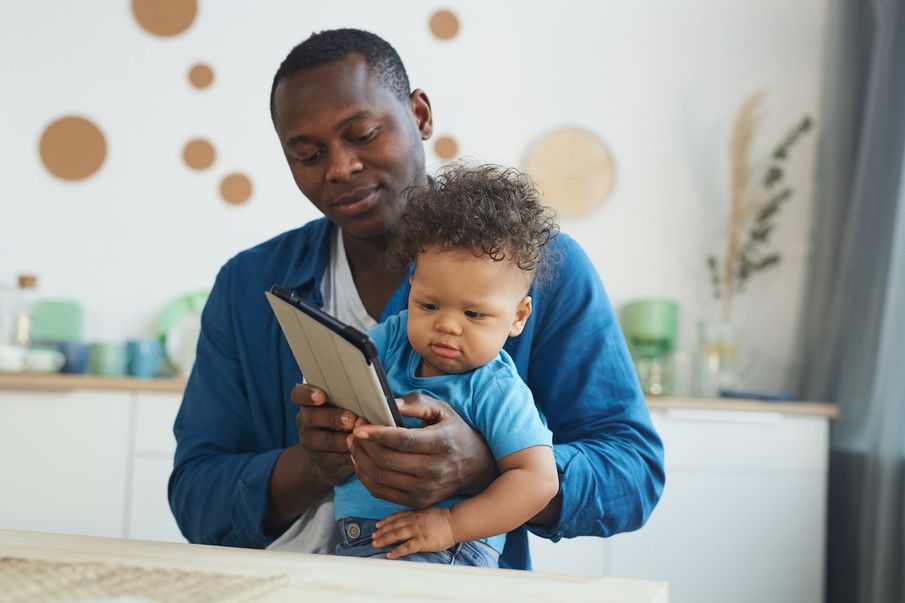The BBC has launched a new online platform for parents of young children and the Duchess of Cambridge has described it as “gold dust”
When children start school, it’s expected that they should be able to speak to their new friends in full sentences, ask teachers simple questions and understand what they’re told to do. However, not all children starting school across the UK this year will be able to do all of these things.
In England, one in four children is behind with their level of literacy development (language, communication and literacy skills) by the time they start primary school. According to the Department for Education, this figure increases to more than one in three (42%) in some areas. The picture is similar in Wales, Scotland and Northern Ireland, too.
This is significant, as research by the National Literacy Trust shows that once children start behind, they stay behind - affecting performance in school, job prospects and even life expectancy.
Tiny Happy People, a new BBC resource, is hoping to tackle this. Aimed at developing children’s communication and language skills, the platform focuses on encouraging parents and carers to talk to children from as early an age as possible.
The BBC's #TinyHappyPeople starts today! 🥳
— BBC Radio 5 Live (@bbc5live) July 14, 2020
The project aims to help parents with language and communication skills for pre-school kids.
We'll talk to those involved across the week on @BBCSounds and you can find activities, expert tips and advice at https://t.co/sjFNHSuBOC pic.twitter.com/MjtDcm7iio
It aims to help parents with simple activities, which are easy to build into your daily routine. They’re quick and inspiring, but they’re also based on expert advice and evidence, and are proven to help children’s development.
The resources include parenting tips, films, articles and quizzes to help parents and carers right from the start of pregnancy. Other advice on the platform includes tips on staying at home during the pandemic, focusing on how to create a calmer bedtime routine and how to soothe children’s anxiety.
Every activity is a chance to talk, bond and have fun with your child. Because your words build their world.
The initiative is supported by the Duchess of Cambridge, who focuses on topics such as early years’ development and children’s mental health and wellbeing as part of her own royal duties.
The Duchess has been working behind the scenes on the broadcaster’s education initiative for months, including a visit to Broadcasting House last November to work on video resources and social media content. In particular, she had a hand in two cartoon films, helping with the character and background development for the animations - one on the ‘science of singing to bump’ while pregnant, and another on how eye contact is key to a language’s learning.
The Duchess was interviewed by BBC Breakfast about the project as part of the national launch. She said there is “a massive gap” in the support given to parents after the first few months of a child's life until they start school. It was something she felt too as a new mum.
“It's information I wish I had had as a first-time mum, it's gold dust really for families to be given those tips and tools to be able to use, particularly in those first five years.”
The Duchess of Cambridge tells #BBCBreakfast there is “a massive gap” in support given to parents after the first few months of a child’s life until they start school ⤵️
— BBC Breakfast (@BBCBreakfast) July 14, 2020
She was speaking as part of the BBC's Tiny Happy People initiative. More here: https://t.co/bGsudo8b6V pic.twitter.com/0FMrPmVZ4j
The initiative is also supported by several celebrities, who are using the activities to build their own infants' communication skills. Supporters include soap stars Jennie McAlpine and Kieron Richardson, BBC Three presenter Annie Price, and Louise Pentland, who was voted the UK's favourite mum influencer last year.
Louise said, “I think Tiny Happy People is so important because the more a child can communicate, the more they can engage with the world. And this sets them up for the rest of their lives.
“As a working mum, Tiny Happy People is so easy because it's in my pocket. In 20 minutes, I can pick an activity and feel like a mum winner.”
Find out more about Tiny Happy People and try some of the activities with your child today.
Or, for more activities, news, and practical ways to help support positive mental and emotional health for children, visit our Happiful Kids hub.


Comments